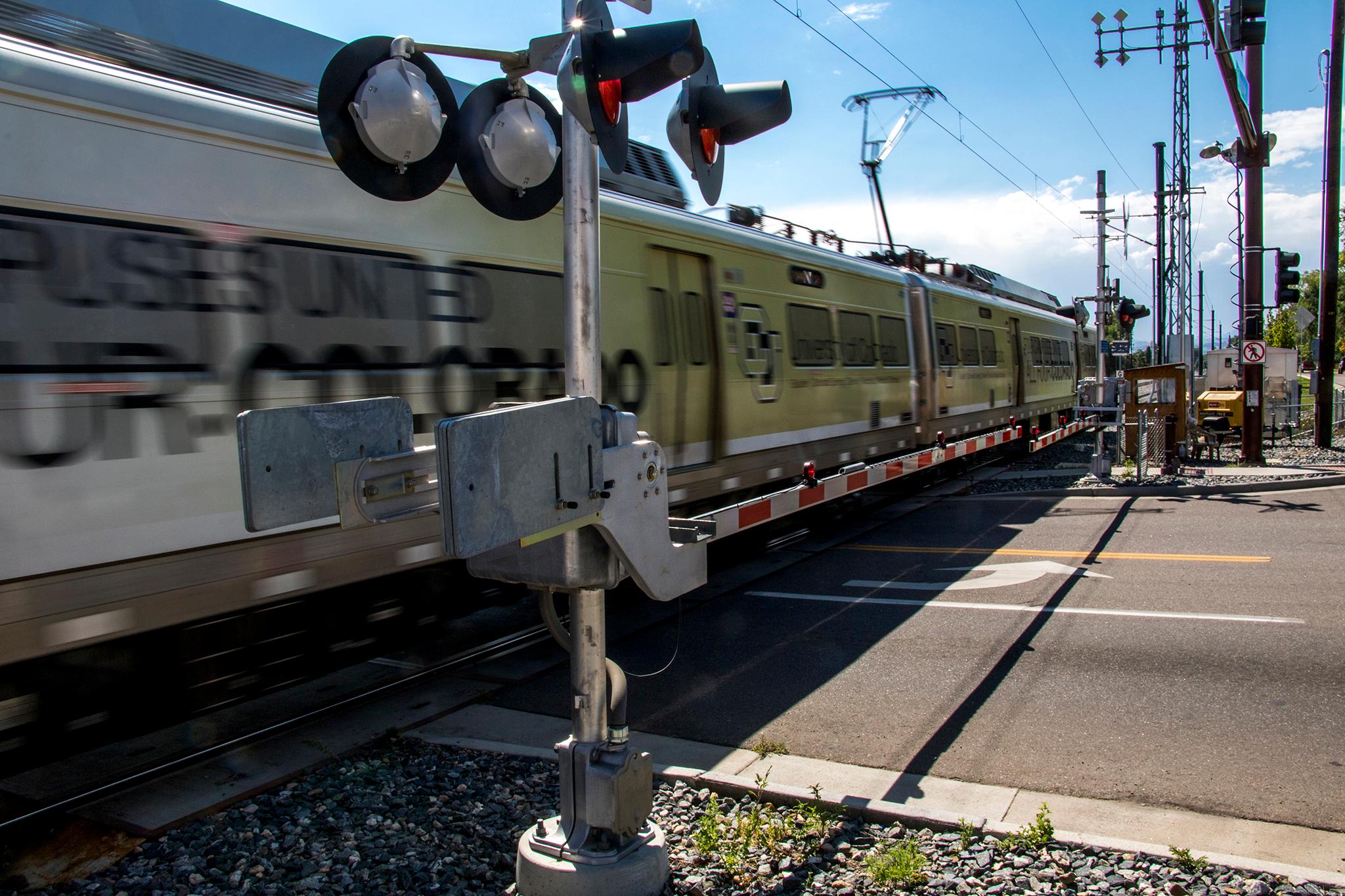
In the 12 months after the Regional Transportation District’s A Line commuter train opened in April of 2016, operators made about 20 serious mistakes on it and the agency’s B Line that opened later that year. In some cases, those mistakes put people’s lives in danger.
But since then instances of such mistakes, recorded as engineer decertifications, have fallen significantly. Records from RTD obtained via public records requests show just 12 since spring 2018, when CPR News first reported on the issue. An engineer can lose their certification for mistakes like speeding, blowing a red signal, or not checking their brakes.
“What the numbers basically tell us is that we now have a seasoned operator staff who basically are performing at the levels we expect,” said Allen Miller, RTD’s deputy assistant general manager of commuter rail.

Last year, multiple train operators told CPR News that starting wages were about $16.50 per hour. Those, they said, and difficult working conditions, led to high turnover in their ranks, and subsequently, more mistakes. Miller said wages are now between $22 and $25 an hour, putting operators somewhere in the 56th to 58th percentile for wages across the country.
Miller said he’s compared the number of engineer decertifications on RTD’s commuter rail system to 41 others across the country, making adjustments for the size of each system. RTD is in the 95th percentile in that comparison, Miller said.
“Statistically, we're about where we want to be,” Miller said.
However, RTD wasn't able to produce any data backing up Miller's assertion.
Train operators technically work for a for-profit contractor, Denver Transit Partners. DTP Executive Project Director John Thompson said while turnover continues to be a problem, the root of it extends beyond pay. Operators are often promoted into other positions, he said, and off-hour shifts often take new drivers by surprise.
“People thought they could embrace that when they signed on,” Thompson said. “But it’s not turned out that it’s something that they can do.”
Thompson acknowledged a bump in decertifications this year over last, and pointed to the opening of the G Line from Union Station to Arvada and Wheat Ridge as a potential explanation. “That's brought on another 130 trips per day,” he said. “That could be a factor in that, but it's a bit early to tell that for sure.”
While the records RTD provided had very few details, Thompson said most decertifications happened at low speeds and off the main tracks. But Thompson said they still take each one “extremely seriously.”
“We investigate all these incidents,” he said. “We learn from them. And that's fed back into the operator population for future learning.”
Editor's note: This story has been updated with more information about RTD's comparison of its commuter rail system to others across the country.









